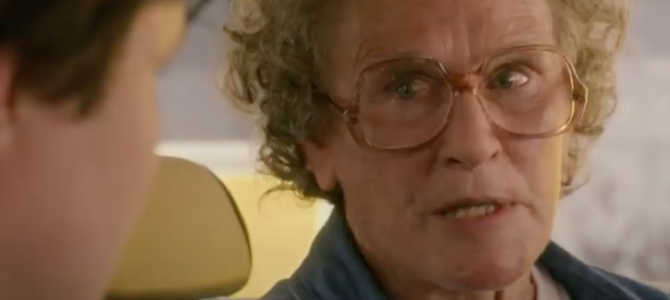Netflix’s star-studded adaptation of “Hillbilly Elegy” is a missed opportunity, but beggars can’t be choosers, I suppose. In director Ron Howard’s capable hands, J.D. Vance’s memoir is transformed from a complicated cultural commentary into a myopic personal narrative. That would be forgivable—laudable, even—if the film didn’t also look like a made-for-TV movie.
Glenn Close and Amy Adams deliver piercing performances as Vance’s mamaw and mother respectfully. What’s odd is how some scenes feel like selections from an Oscar-worthy film while most of the movie feels more like an after-school special. From the writing to the directing, it’s really cheesy, and not in a good way. Again, Close and Adams shine, and Howard treats their performances beautifully in a few key scenes. But they’re the exceptions.
Vance’s book is dotted with Putnam-esque analyses of cultural decay, using the author’s compelling path from Appalachia to Yale as a way of putting a human face on the trends identified by Charles Murray and other social scientists. It was a controversial effort, even in conservative circles, but given that Vance tricked droves of educated elites to read about and empathize with the country’s suffering center, his project was certainly a valuable one.
Despite its narrow focus on Vance—and weirdly low quality—Netflix’s “Hillbilly Elegy” does, at least, also ask viewers to consider the plight of Appalachia, of working class people in the throes of addiction and divorce and civic decay. That alone seems to have been enough for progressive reviewers to give the film low marks. One such writer complained that the film is objectionably insistent on personal responsibility.
That’s laughable because the film isn’t coherent enough to be insistent on any broader message at all—other than Vance’s personal path to success. There’s little to no emphasis on his community. The film lacks the sense of place that his memoir crafted carefully.
I’m admittedly among the conservatives who regularly chide Hollywood for paying far too little attention to stories like Vance’s, people who know and empathize and understand these experiences, which are so essential to understanding our politics right now. The decision Netflix, Howard, Close, and Adams made to take up this project is certainly a heartening one.
It shouldn’t have been controversial but, of course, it was. That, perhaps, explains why a memoir that usefully and purposefully sought to explain cultural patterns that rankle the left was diluted into the “Hillbilly Elegy” of Howard’s lackluster rendering.









